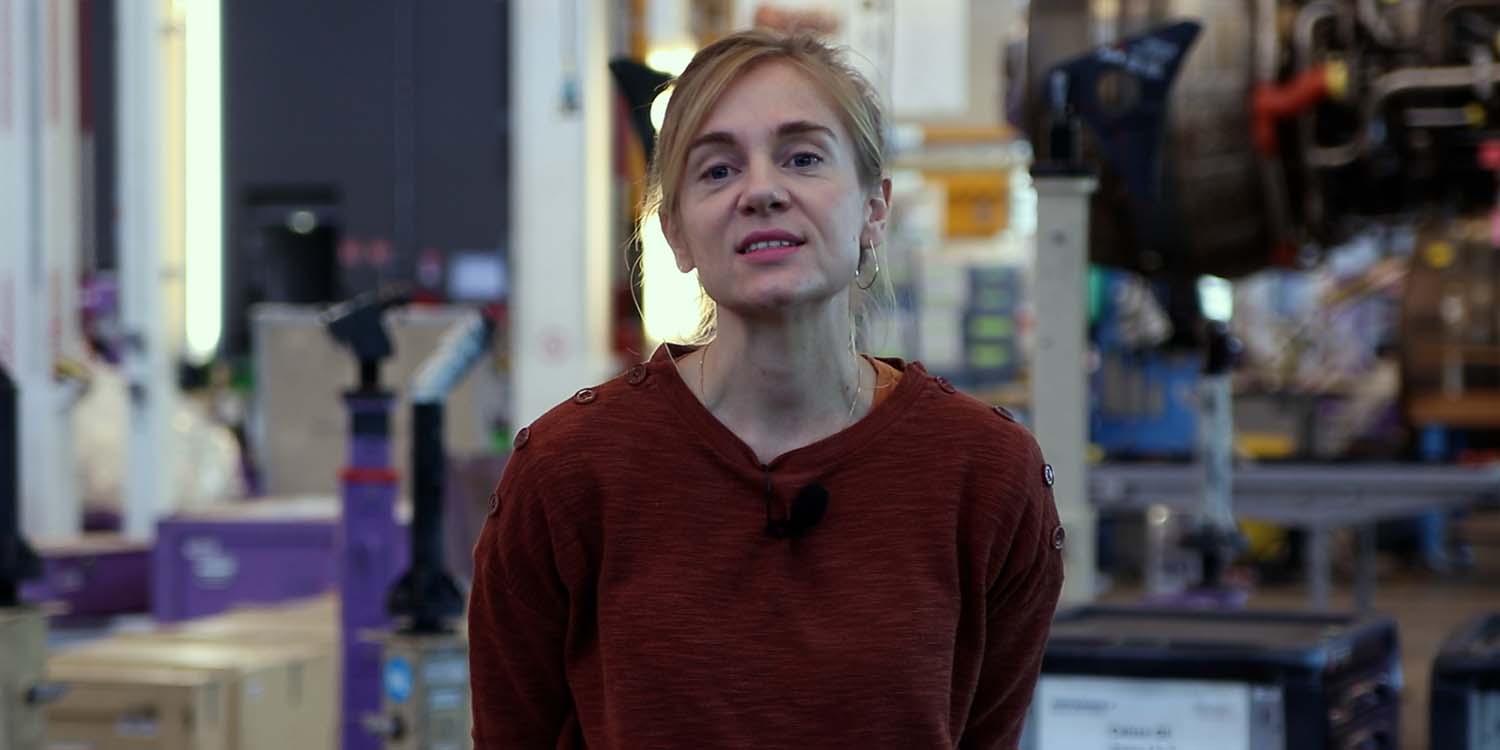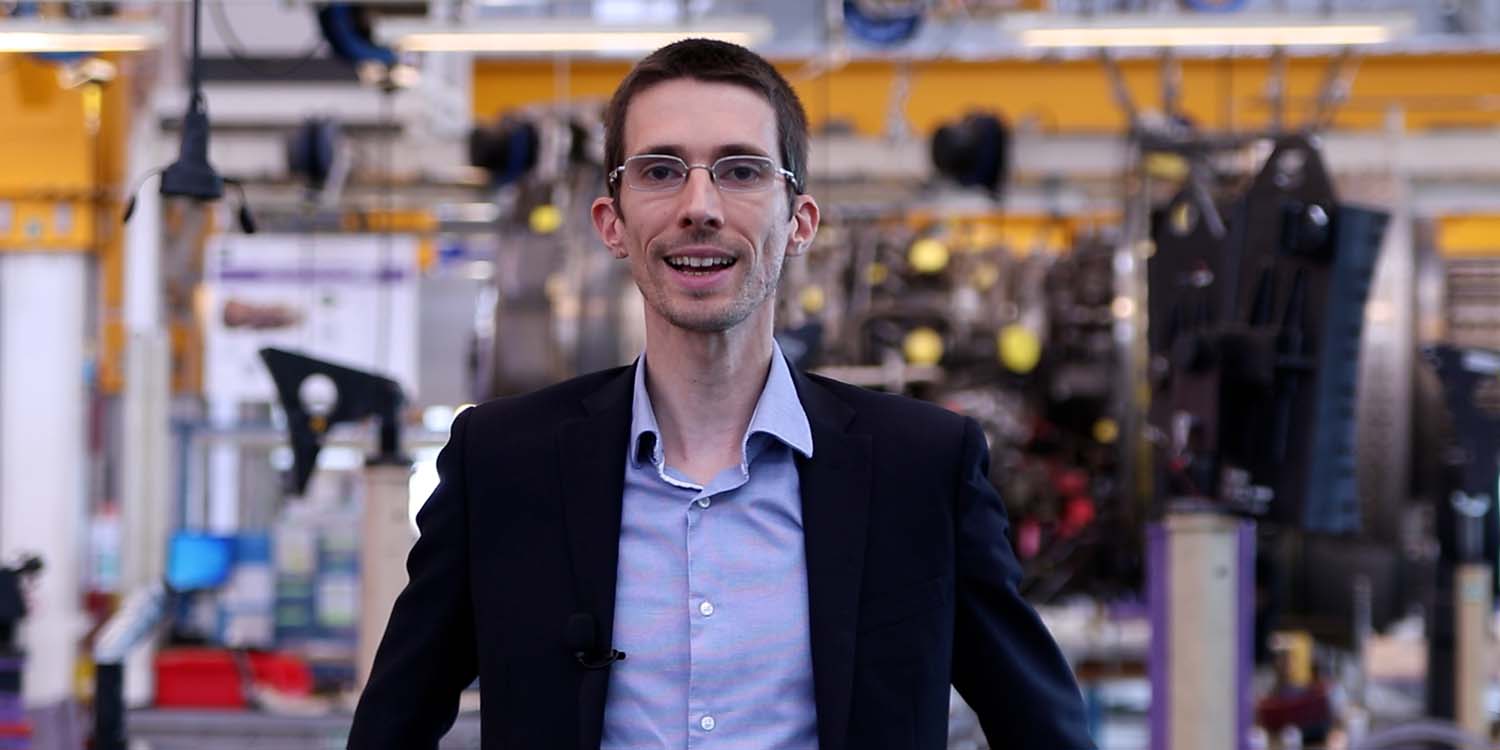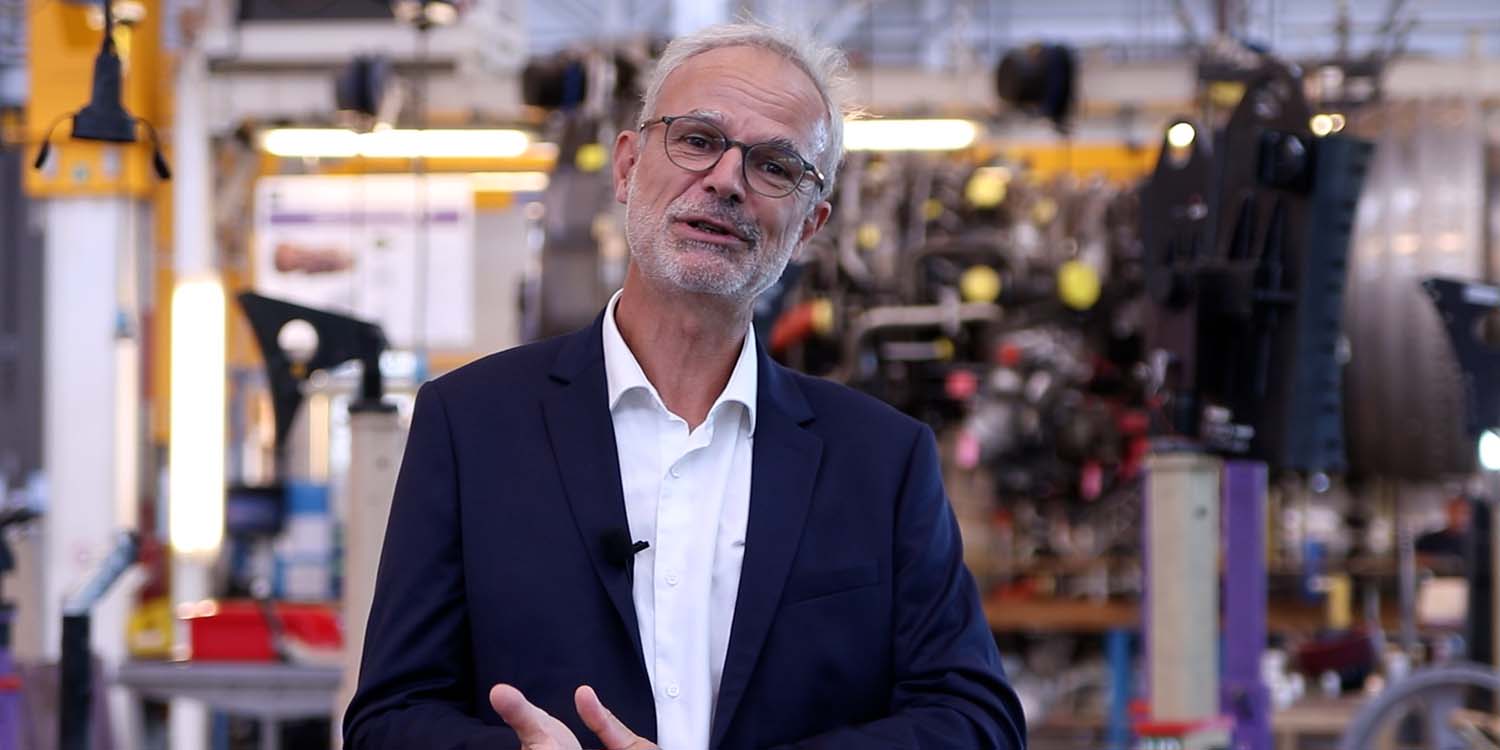00:00:00 Introduction to Air France Industries facilities.
00:00:30 Adrien’s background before joining Air France Industries.
00:01:31 Current role at Air France and industry challenges.
00:02:52 Harmonization, standardization, and orchestration challenges in aviation.
00:04:37 The critical role of security in the aviation industry.
00:05:44 Strategies for improving efficiency in the aviation supply chain.
00:06:39 The future of supply chain at Air France Industries.
00:07:34 Upcoming technological projects at Air France Industries.
00:08:03 Discussing data analysis and metrics.
00:09:15 Understanding effective KPIs in information overload.
00:10:38 Importance of data analysts in handling data influx.
00:11:01 Role of predictive information in optimization.
00:14:20 Future of Air France supply chain.
Summary
Guillaume Adrien, VP of Supply Chain Design and Performance at Air France Industries, and Joannes Vermorel, Lokad’s founder, discuss the complexities of aviation supply chain optimization. Adrien explains that the nature of the industry demands swift response to unpredictable circumstances, with safety being a top priority. The collaboration with Lokad and the use of predictive optimization technology has resulted in noticeable improvements in non-stock management and other supply chain areas. Emphasizing the ongoing transformation of Air France’s supply chain, Adrien highlights the need for adaptability, curiosity, data-driven mindsets, and innovation in aspiring engineers. The goal is to create a digital twin of the supply chain for potential optimizations.
Extended summary
Joannes Vermorel, the founder of Lokad, and Guillaume Adrien, VP of Supply Chain Design and Performance at Air France Industries, discuss supply chain optimization in the aviation industry. Their conversation takes place at an Air France Industries engine repair shop.
Adrien shares his prior work experience, which included heavy industry roles and leadership positions in a lime and limestone company, and a factory producing refractory bricks and precipitated calcium carbonate for paper. Adrien’s current role involves re-engineering and improving the supply chain for Air France Industries.
Vermorel discusses the complexities of the aviation industry’s supply chain, noting that it encompasses almost all technological advancements made by humankind. An aircraft requires the combined efforts of a worldwide industry to function, a process that becomes more complicated when considering the need for safety and efficiency in an operation of Air France Industries’ scale.
Adrien explains that Air France Industries deals with tens of thousands of individual references and manages around 1 million flow movements across hundreds of destinations annually. Compared to typical supply chains, aviation supply chains are difficult to schedule due to their unpredictable nature. Therefore, Air France Industries uses statistical methods to anticipate workload and react quickly to urgent demands. The main challenge is ensuring quick and efficient data connectivity between internal and external systems.
Efficiency in the aviation industry is inherently challenging due to the non-negotiable demand for absolute safety, the sheer complexity of different systems, and the relatively small number of aircraft compared to other industries. Adrien explains that key aspects of efficiency improvement include better event forecasting, reducing the time parts are unserviceable, and optimizing data connectivity.
Adrien also discusses future technologies and initiatives that could improve supply chain efficiency. He mentions ongoing projects to automate data acquisition from paperwork through artificial intelligence, and leveraging image analysis technology for better logistics management.
Adrien acknowledges the challenge of dealing with vast amounts of data, highlighting the need for relevant key performance indicators (KPIs). Current technology can develop individualized KPIs for everyone, but there is a growing need for data analysts who can extract valuable insights from the large volume of incoming data.
Adrien mentions that Air France Industries has been working with Lokad, a predictive optimization software, for seven years. Lokad’s software, combined with the business knowledge of Air France Industries, has helped optimize the supply chain and improve predictive information quality. Vermorel confirms Lokad’s commitment to continue supporting Air France Industries in the future.
Adrien expressed his appreciation for Lokad’s approach. He admired their departure from traditional methodologies and admired how they comprehended the business’s unique demands. Adrien noted that the synergy between the competence of both teams allowed for a more profound understanding of what each entity does, facilitating easier development of solutions. He also praised the rapidity of the time to market.
The conversation moved to tangible benefits Air France Industries enjoyed from this predictive optimization technology. Adrien found it challenging to pinpoint particular advantages as the process involved continuous collaboration. He compared the process to a recipe, where the combination of various ingredients leads to value. Through their partnership, they identified areas in the supply chain for improvement, as well as enhancements in non-stock management. Numerous ongoing optimizations resulted from this collaboration.
When discussing the future of Air France’s supply chain, Adrien revealed that they were in the midst of a transformation program. The challenge, he noted, was linking real operations with the data retrieved from various systems. The ultimate goal is to create a digital twin of the supply chain to unlock potential areas of optimization.
Adrien also highlighted the demanding nature of the aviation supply chain, which involves more than managing spreadsheets and determining safety stocks. This area deals with hundreds of thousands of skus, making it more complex than it appears.
For young engineers interested in this field, Adrien emphasized the importance of adaptability, curiosity, and the ability to drive change in a fast-paced environment. A data-driven mindset is crucial. Familiarity with the supply chain or IT is advantageous but not a priority. They can learn about the MRO model and the different IT systems used in companies. Most importantly, a touch of innovation is beneficial.
In conclusion, the discussion underscored the importance of continuous collaboration, adaptation, innovation, and data-driven decision making in supply chain optimization in the aviation industry. The conversation also highlighted the potential for further improvements and transformations in the field.
Transcript
Joannes Vermorel: We are at the engine repair shop of Air France Industries. As you can see, this is not exactly your average office. Just behind me, there is a massive aircraft engine which weighs more than 10 metric tons. Guillaume, thank you very much for welcoming us to this incredible facility.
Guillaume Adrien: You’re welcome.
Joannes Vermorel: Could you tell us a little bit more about yourself and what you were doing prior to joining Air France Industries?
Guillaume Adrien: Prior to joining Air France Industries, I was working in heavy industry. I started at the quotation department of Ponticelli, a company which revamps refineries. Then I moved on to become a mineral analyst at Lhoist company, a world leader in the lime and limestone market. I did that for a few years before I became a production engineer and headed the production of two plants, one to produce refractory bricks for the steel industry, and another to produce PCC, a precipitated calcium carbonate for paper which makes it very white and very soft. After this, I moved to Air France Industries.
Joannes Vermorel: So, it’s quite an industrial background. And what is your current role and mission at Air France Industries?
Guillaume Adrien: Today, I’m in charge of re-engineering distribution, trying to build what will be the supply chain of tomorrow. It’s quite a challenge.
Joannes Vermorel: The aviation industry is special because an aircraft integrates pretty much every single piece of technology ever invented. It takes a world industry to make an aircraft fly. For a large company like Air France that has been around for many decades, having everyone work together efficiently, while ensuring the safety of the aircraft, is quite a challenge. There are broad topics in terms of supply chain efficiency, harmonization, standardization, and end-to-end orchestration, which are all challenges because Air France doesn’t operate millions of aircraft. You have hundreds of aircraft, not millions. Could you tell us a bit more about these harmonization, standardization, and orchestration challenges at Air France Industries?
Guillaume Adrien: To have an aircraft fly safely, we need tens of thousands of different individual references. During one year, we have around 1 million flow going through our supply chain with hundreds of different destinations, which makes it quite complex. We’re a bit different from the classical supply chain in manufacturing, where you have a specific sales order that you can anticipate and everything is scheduled from that. For maintenance, repair, and overhaul, it’s a bit different as we are not able to schedule this type of removal as easily. We have to build a statistical way of anticipating the workload and a way to react very quickly when we discover that we have to take a part very urgently. I think our main point today is the connectivity between the systems that we are working with, especially because we work with partners and customers. We have internal systems also, and the key is the quick connection between all these information systems.
Joannes Vermorel: In the entire aviation industry, security is paramount. This is non-negotiable. But also, the complexity is just over the top in terms of different parts, technologies, suppliers, etc. My understanding is that the default is low efficiency. It’s not that people don’t want to be efficient, it’s just that if you start with the non-negotiable requirement of safety, you can’t cut any corners. Then add to that the massive complexity and the fact that you don’t have millions of aircraft, only hundreds or over a thousand for a group like Air France. It makes achieving efficiency incredibly challenging. Could you tell us a bit about the sort of perspectives that you have to gain efficiency, to make the supply chain and the end-to-end coordination more efficient at Air France Industries?
Guillaume Adrien: If we go back to the first question, one key is the ability to forecast events which will occur. The second one is to be able to reduce the time a part is unserviceable in the chain. The added value we have is to be sure that we will have the right parts at the right time for the right plane. If we have a time of unserviceability that is too long, the cost is very high. To optimize the supply chain and the organization, we need to reduce this unserviceability time. To achieve that, we have to work on the systems, on the connectivity, and on the data. That’s what we are doing now.
Joannes Vermorel: Your colleagues describe you as Mr. Supply Chain of the Future. What are the initiatives or technologies that really capture your interest for the future of the supply chain at Air France Industries?
Guillaume Adrien: Just before answering, “Supply Chain of the Future” is not just dedicated to one guy. Supply chain involves the combination of almost all the services of the company, from the IT department to the sales department, to purchasing, to customs. If one is not working properly, the supply chain is not efficient. The first thing is the coordination that we will be able to achieve between all these services. Now, if you want to talk about technologies and what can help us do that, we have some pretty good projects that we are launching or will launch. We are now launching a study about the acquisition of data from paperwork. We have a lot of paperwork in logistics and in aeronautics, and with a layer of AI in it, we will be able to identify exactly which data is there and how to store it in a proper field to accelerate the supply chain. We can see that data is all over the place, and it’s increasingly easy to connect many systems together. Yet, even though it’s relatively easy to engineer thousands of KPIs, it can be quite challenging to have a handful of KPIs that actually bring value or transparency.
Joannes Vermorel: So, how do you see your work and the perspective for the supply chain at Air France dealing with this?
Guillaume Adrien: You ask a very good question. It’s difficult to make relevant KPIs when you have a lot of information. We can put everything on the table and say, look at what we have, we have thousands of data points. But we now have the technology to identify and build just three KPIs for everyone, even if they are different for each person. We can do this right now. I think our progress lies in the work of the data analyst, a role that is growing in importance within the company and globally. They need to combine business knowledge with the ability to extract proper information from the amount of data that is coming to us.
Joannes Vermorel: I agree with your perspective. Lokad has been working for half a decade with Air France, providing predictive optimization. How do you see this relating to the challenges that you are facing at Air France Industries?
Guillaume Adrien: It’s crucial for us to have predictive information for optimization purposes. We’ve been working with Lokad for about seven years. The combination of your data scientists, our business knowledge, and expertise in statistics has helped us progress. We have been able to optimize supply chain engineering within Air France thanks to these combined competencies.
Joannes Vermorel: That’s encouraging to hear. But, the Lokad approach is fairly unusual compared to traditional supply chain methods. What surprised you the most about how Lokad approaches the aviation supply chain?
Guillaume Adrien: Instead of taking a very classical approach, we appreciated Lokad’s understanding of the business. The ability to merge our competencies allowed us to develop solutions easily and swiftly, as we understood each other’s sides. That was one of the things I appreciated most, and it was a pleasant surprise.
Joannes Vermorel: That’s great to hear. Can you give us a concrete example of the benefits for Air France Industries from having this predictive optimization technology?
Guillaume Adrien: That’s a bit difficult to quantify because it’s a continuous collaborative effort. It’s like a recipe - it’s the combination of different ingredients that brings value. But we have discovered improvements in some areas of supply chain and identified areas where we could improve our non-stock management.
Joannes Vermorel: What’s your current roadmap for the future of Air France’s supply chain?
Guillaume Adrien: We’re in the midst of a transformation program. One of our goals is to create a digital twin of the supply chain, to open up optimization possibilities that we can’t even imagine at this moment.
Joannes Vermorel: Aviation supply chain is clearly more demanding than just managing spreadsheets. For young engineers interested in this field, what qualities are you looking for?
Guillaume Adrien: I’m not looking primarily at supply chain or IT competencies. What I value is their ability to adapt and drive change in a fast-moving environment. So, curiosity is important. They need to enjoy working with data and be innovative. If they’re willing, they can learn the rest - be it the MRO model or the IT system.
Joannes Vermorel: Thank you very much. It’s been great talking with you in this incredible aircraft repair shop at Air France industry.


